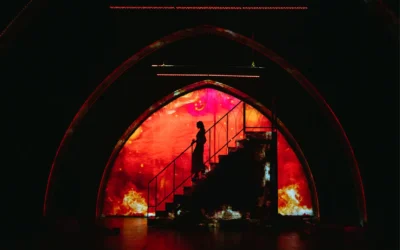Have you ever wanted to escape the grey of the buildings downtown but you don’t quite want to make the drive out to the mountains? Do you ever just need a place where you can reflect and take a breath?
Well, look no further. Just 15 minutes outside the city limits lies an escape; an escape in the form of an expansive garden which incorporates ancient geometric patterns of Islamic architecture and emphasizes the value of water known as The Aga Khan Garden.
Created through a generous donation by His Highness Aga Khan and designed by landscape architectural firm Nelson Byrd Waltz, the garden is a modern interpretation of ancient culture. It opened in June 2018 and is a highlight of the Botanical Gardens.
Kerry Mulholland, the communications and marketing coordinator of the University of Alberta Botanic Gardens, shares that the architects of the garden set out to answer the question, “What would a 21st century garden look like that was inspired by historic Islamic landscapes?”
The Aga Khan Garden showcases elements of history through its use of water. Mulholland says that “the design intention in The Aga Khan Garden is to emphasize water’s precious quality and its capacity to delight the human soul.” This emphasis is of historical value, as Islamic Gardens were traditionally built in arid landscapes where water was viewed as precious.
Throughout the journey in this garden, water takes on many forms and meanings. It is naturally present in the landscape but also makes appearances in the fountains, streams, and basins. Water is also used to create a space for thought in the granite still water basins. Reflecting the sky above, the basins show the fragile nature of human life as the reflected picture is able to be lost with the slightest touch or breeze.
Other features include the use of traditional Islamic geometry in the garden. These consist of lines and circles that are overlapped, interlaced, and repeating, forming complex and intricate patterns. In addition to this, the garden contains more than 25,000 trees, shrubs, perennials, annuals, and wetland plants, selected for fragrance, beauty and their ability to thrive in Alberta’s northern climate, reads a description on the garden’s website.
The garden serves as an embracement of pluralism —an important value in Canadian society and in Islamic culture. It also serves as a living symbol of a commitment to continued growth and understanding of all different cultures as well as for hope of peace and unity. This is a garden for all people.
Visitors will be left in awe of the use of geometry, light, and shadows in the creation of a garden for tranquil thought and reflection.
Stop by the garden and enjoy a serene and pleasant stroll. You could also enjoy a picnic; the Botanic Gardens have Brunch Boxes and Twilight Picnic packages available for purchase.
It is also a popular destination for cultural programming, concerts, lectures and symposia, and for weddings, says Mulholland.
The gardens will remain open until Sept. 30. Prices for students are $9.50 and passes are valid for the whole day. If you finish with The Aga Khan Garden and find yourself wanting more, admission to the Botanic Garden also includes access to the beautiful Kurimoto Japanese Garden and Indigenous Garden.
The gardens are currently open with public health protocols related to COVID in place. Admission to the garden is through online reservation in order to manage capacity in the Garden and allow for physical distancing.
Image credit: Brett Boyd





0 Comments